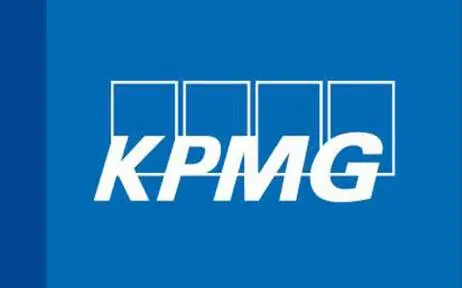Cost of Living in Dubai
Dubai, best known for its Gold Souk, architectural monuments and gleaming desserts also has one of the best… The post Cost of Living in Dubai appeared first on Leverage Edu.


Dubai, best known for its Gold Souk, architectural monuments and gleaming desserts also has one of the best educational infrastructure in the world. It provides students with the finest education and lucrative career opportunities. In recent years Dubai has witnessed a lot of immigrant population and various top universities of the world have taken up this chance to set up their campuses in Dubai. Are you interested in studying in Dubai but want to know if it matches your budget or not? Well then, you’ve come to the right place. Keep up with this blog to learn how much on average it cost to study in Dubai and Cost of Living in Dubai.
| Tuition Fees(Undergraduate programs) | 37,500-70,000 AED per year (Approximately Rs 7,53,750- Rs 14,07,000) |
| Tuition Fees(Postgraduate programs) | 55,000- 75,000 AED per year (Approximately Rs 11,05,500- Rs 15,07,500) |
| Accommodation Costs | 14,000- 27,000 AED per year (Approximately Rs 2,81,400- Rs 5,42,700) |
| Food Costs | Around 908 AED (Approximately Rs 18,250) |
| Travel Costs | Metro- 2 AED (Rs 40)- 1 zone Taxi- 10 AED (Rs 200 roughly)-5 km |
| Student Visa Cost | Up to 3000 AED (Approximately Rs 60,300) |
| Scholarships | Government Scholarships College Scholarships |
Also Read: Exploring Student Life in Dubai
Cost of Living in Dubai
Housing & Accommodation Costs in Dubai
There are two types of accommodation that a student can opt for on-campus and off-campus. On-campus accommodations are usually preferred by the students as it is comparatively cheaper than living in the main city. Out of more than 63 universities in Dubai, only some provide on-campus accommodation and others have tie-ups with local hotels to provide accommodation to students at a cheaper rate. On-campus accommodation will cost you around 14,000-27,000 AED (2,81,400-5,42,700 INR roughly). On the other hand, if you opt for private accommodation you will have to bear more costs. On an average private accommodation will cost you ranging from 70,000 – 100,000 AED (14,07,000-20,10,000 INR roughly). It will probably cost you cheaper if you opt for a shared apartment.
Cleaning Services in Dubai
Cleaning services for lodgings are also included in the housing area of living costs. Typically, this service is given by employing domestic assistance, which is relatively widespread in Dubai. The fees differ based on the type of cleaning, but a full-time domestic assistant may expect to earn roughly AED 2,700 (USD 735) per month, while a part-time domestic helper who comes in once a week (3-hour service) can expect to pay around AED 390 (USD 106) each month.
Must Read – Top Universities in Dubai
Groceries Cost in Dubai
Food costs are an essential part of your expenditure while planning your living costs. It goes without saying that food costs vary according to your meal preferences, but if you buy your food from local groceries and go out sometimes, you can expect your average food cost to be around 908 AED per month(18,250 INR).
Must Read- MBA in Dubai
Utilities Cost in Dubai
Usually, international students prefer public modes of transportation as it is the most viable option, especially for students in terms of cost and efficiency. The most affordable kind of transport in Dubai is the metro and the average fare is 2 AED(40 INR) for one zone. Students between the age of five and twenty-three can also apply for a discounted fare NOL Blue Card for public transport use which includes Dubai Metro. You can apply for the card either online or offline. You can also opt for private taxis but it will be much costlier than the public means. A private taxi will cost you around 10 AED for a 5 km trip. If you have a good budget with you then you can also look at the option of a hired car which costs around 600 AED per week(12,060 INR).
Mobile Bill/Wi-Fi Cost in Dubai
| Bill Type | COST |
| Basic Internet and TV package | AED 389 per month |
| Premium Internet and TV package | AED 1,139+ per month |
| Basic Mobile Postpaid Plan | AED 125 per month |
| Premium Mobile Postpaid Plan | AED 500+ per month |
Healthcare & Insurance in Dubai
The Dubai Health Authority has enacted new law mandating that all residents, including foreigners, obtain private medical insurance. Expats will need to be covered by private health insurance schemes, which are usually purchased through their employers. While locals can be covered under the government-funded scheme, expats will need to be covered by private health insurance schemes, which are usually purchased through their employers.
Dubai is known for having one of the best healthcare systems among the seven emirates. Both public and private healthcare services will be available to you as an expat.
- Health Card
While locals have free access to Dubai’s public medical facilities, expatriates may get a 50% discount with a health card. The following are the costs of a health card:
- Expatriate Fee up to 10 years – AED 120 (USD 32.67)
- Expatriate Fee from 18 and above – AED 320 (USD 87.12)
- Nationals Fee up to 10 years – AED 25 (USD 6.81)
- Nationals Fee from 18 and above – AED 120 (USD 32.67)
- The Essential Benefit Plan
There’s also something in place for low-wage workers and individuals who don’t work. The Essential Benefits Plan (EBP), which was introduced in 2014, is the minimum level of health insurance coverage that all residents of Dubai must obtain. It offers necessary services at a reasonable cost. The annual premium package charge for an EBP is broken out below by gender, employment, and age:
- Employees: AED 650-725
- Dependents (aged 0-65): AED 650
- Non-working married females (aged 18-45): AED 1,600
- Elderly parents: AED 2,500
- General domestic help: AED 650
Commuting & Transportation Cost in Dubai
- Car Ownership
The price of an automobile is highly dependent on its condition. To give you an idea, the most popular car in the UAE is the 2018 Toyota Corolla, which costs AED 70,900. With a typical 20% down payment, a 5-year payback plan, and other charges taken into account, the annual cost would be AED 20,800, minus the down payment. When purchasing a secondhand automobile, however, depreciation often subtracts 20-40% from the entire cost. A used 2018 Toyota Corolla (2 years old) costs on average AED 48,878 in 2020 (a 32 percent reduction).
- Public Transportation
| Transportation Fares/Prices in Dubai | Average Cost |
| Taxis (per 1 km) | AED 2.48 (USD 0.68) |
| Buses (single ticket) | AED 5 (USD 1.36) |
| Buses (monthly pass) | AED 300 (USD 81.68) |
| The average price of 1 L petrol | AED 2.47 (USD 0.67) |
Leisure/Entertainment Cost in Dubai
| ENTERTAINMENT | COST |
| Movie Ticket for One | AED 40 |
| Gym Membership for One Month | AED 297.57 |
| Meal for One (Affordable Restaurant) | AED 30 |
| Meal for Two (Mid-range Restaurant, Three Courses) | AED 250 – AED 300 |
| Meal for Two (Fine-Dining Restaurant, Three Courses) | AED 500 – AED 1,000 |
Cost of Studying in Dubai
The studying cost is not only limited to your tuition fees or accommodation cost, but it is the sum total of all different kinds of expenditures that you need to bear while studying abroad and you need to take all those into consideration to make an appropriate budget.
Public School
While expat children are permitted to attend both public and private schools in the UAE, they must pay tuition regardless of the type of school they attend, as free government education is only available to Emirati citizens. The yearly tuition price for foreigners wishing to attend public schools has been set at AED 6,000 (USD 1,635) per year.
International/Private Schools
Around 300,000 Emirati and foreign students are served by Dubai’s approximately 200 private schools. Dubai is the only emirate that has enacted yearly tuition limitations, prohibiting institutions from raising their charges by exorbitant amounts every year. International school expenses range from AED 13,630 to 21,400 AED (3,710–5,830 USD) per year on average.
Higher Education
There are 65 colleges in Dubai, covering a wide range of topics. Both Emirati and expatriate students are catered to. Public universities in Dubai, on the other hand, educate in Arabic, whilst most private institutions teach in English. Expat students are expected to take Arabic language development lessons regardless of which university they attend. AED 173,400 (USD $47,209) for an undergraduate degree and AED 54,800 to 82,200 (USD $14,919-22,379) for a graduate degree would be the typical total cost.
Tuition Fees
Tuition fees vary according to the level of the program as well as from university to university. The average tuition fees for an undergraduate program in Dubai ranges from 37,500-70,000 AED per year (7,53,750-14,07,000 INR) and for postgraduate programs it ranges from 55,000-75,000 AED (11,05,500-15,07,500 INR). In some universities, the fees are charged to students taking 12-16 credit hours, but most universities charge on the basis of the number of credit hours of the student.
Student Visa Cost
A student visa is necessary to be able to study in UAE. Generally, you need to have a sponsor for your visa that may be a friend or a relative. However, you can also apply without a sponsor. Dubai offers its students a student residence visa for only one year at a time, but it can be renewed further. The application cost for a student visa will cost up to 3000 AED (60,300 INR roughly) and a deposit of 1,000 AED (20,100 INR) is also required.
Scholarships
We know that Dubai can be an expensive country to study, but the city never disappoints those who wish to study there. After learning about the average costs of studying in Dubai, your next step should be looking out for different kinds of scholarships. Here is a list of different kinds of scholarships that you can avail yourself in Dubai-
Government Scholarships
- The Benjamin A. Gilman International Scholarships
- The David L. Boren Scholarships
College Scholarships
- The Marie Wright Scholarship for Non-Traditional Locations
- The American University in Dubai
- The Charles B. Rangel International Affairs Fellowships
- William Jefferson Clinton Presidential Scholarships
Other Scholarships in Dubai
- Financial Hardship Scholarship 2021
- Outstanding Academic Excellence Scholarships
- HH Sheikh Hamdan Scholarships
- The Indian High School Dubai Scholarships
Average Cost of Living in Dubai
| TYPE OF EXPENSE | COST (PER MONTH) |
| Housing | Studios: AED 2,583 (Al Nahda), AED 4,166 (Dubai Marina) |
| Groceries | AED 480 |
| Utilities | AED 750 – AED 1k |
| Total | AED 3k – AED 5k |
Key Tips to Reduce Overall Living Cost in Dubai
Overall, living costs in Dubai are modest but not inexpensive, especially for students from countries with low currency rates. Here are some pointers on how to reduce your overall cost of living in Dubai:
- To save money, students seeking a graduate degree or a PhD at one of Dubai’s prestigious universities might consider living in the institution’s dormitory.
- Instead than paying for private transportation, students can use public transit and share rides with other students. It would surely help international students in Dubai save money on living expenses.
- It is undeniably expensive to dine at posh restaurants or cafés on a regular basis. As a result, you must look for a low-cost option. Both the university cafeteria and street meals are significantly cheaper possibilities. Furthermore, some bars and restaurants charge more for drinks and meals. If at all possible, ordering takeout is a better option.
FAQs
Dubai has two admissions every year on average. This happens throughout the months of January and February, as well as September and October. Only a few colleges, however, admit students in December.
Khalifa University Scholarship
United Arab Emirates University Scholarships
Canadian Dubai Scholarship
Abu Dhabi University Scholarships
Mohamed bin Zayed University Scholarship
Finding part-time work is a worry for every international student. In the United Arab Emirates, international students can take part-time employment outside of school hours. Part-time work, on the other hand, need permission from the University or College. Working at campus libraries, departments, and administrative offices is another way for students to get experience outside of the classroom. During sessions, students may work 15 hours per week or 60 hours per month. During the summer break, they might work for 40 hours per week or 160 hours per month.
Hope this blog of ours helped you get acquainted with the Cost of Living in Dubai and studying in Dubai. If you’re still confused about anything regarding your studies, reach out to our experts at Leverage Edu to get assistance in choosing the perfect course in your dream university!
The post Cost of Living in Dubai appeared first on Leverage Edu.






![National Examinations Council (NECO) Nov/Dec [SSCE] External Timetable For 2022/2023 Examination Exercise | Download NECO Timetable PDF File For Free Here](https://micplustech.com/wp-content/uploads/2020/02/images-33.jpeg)